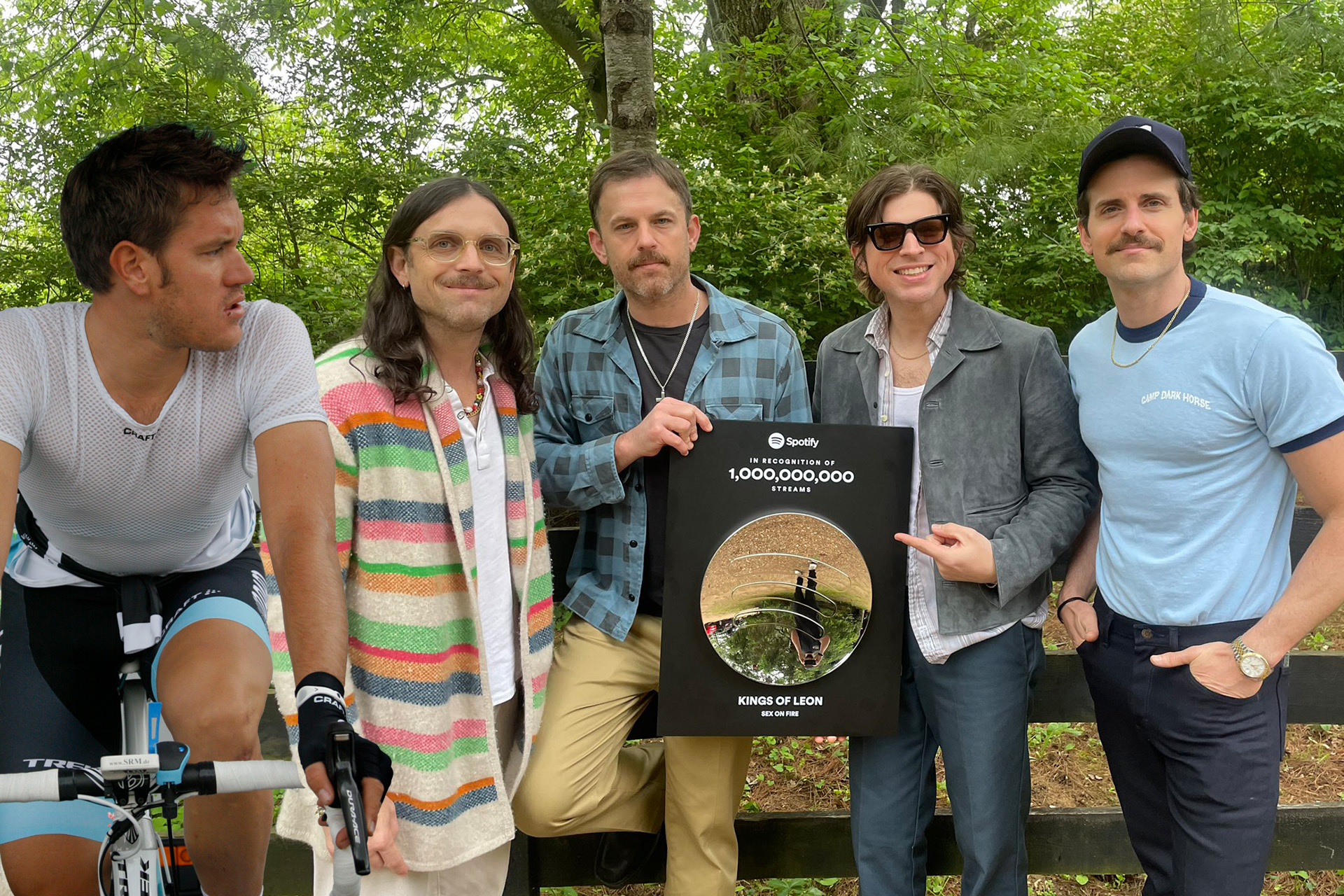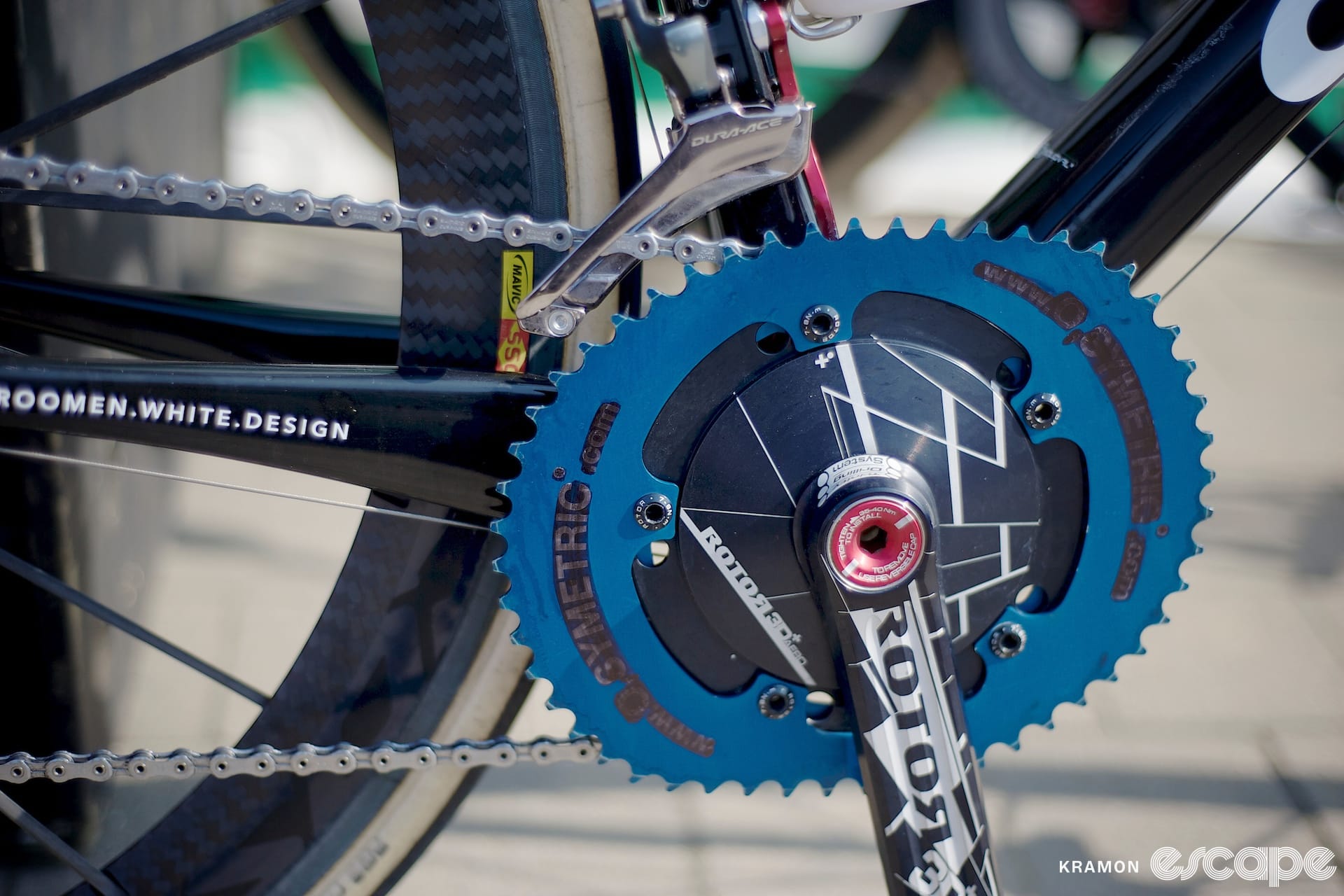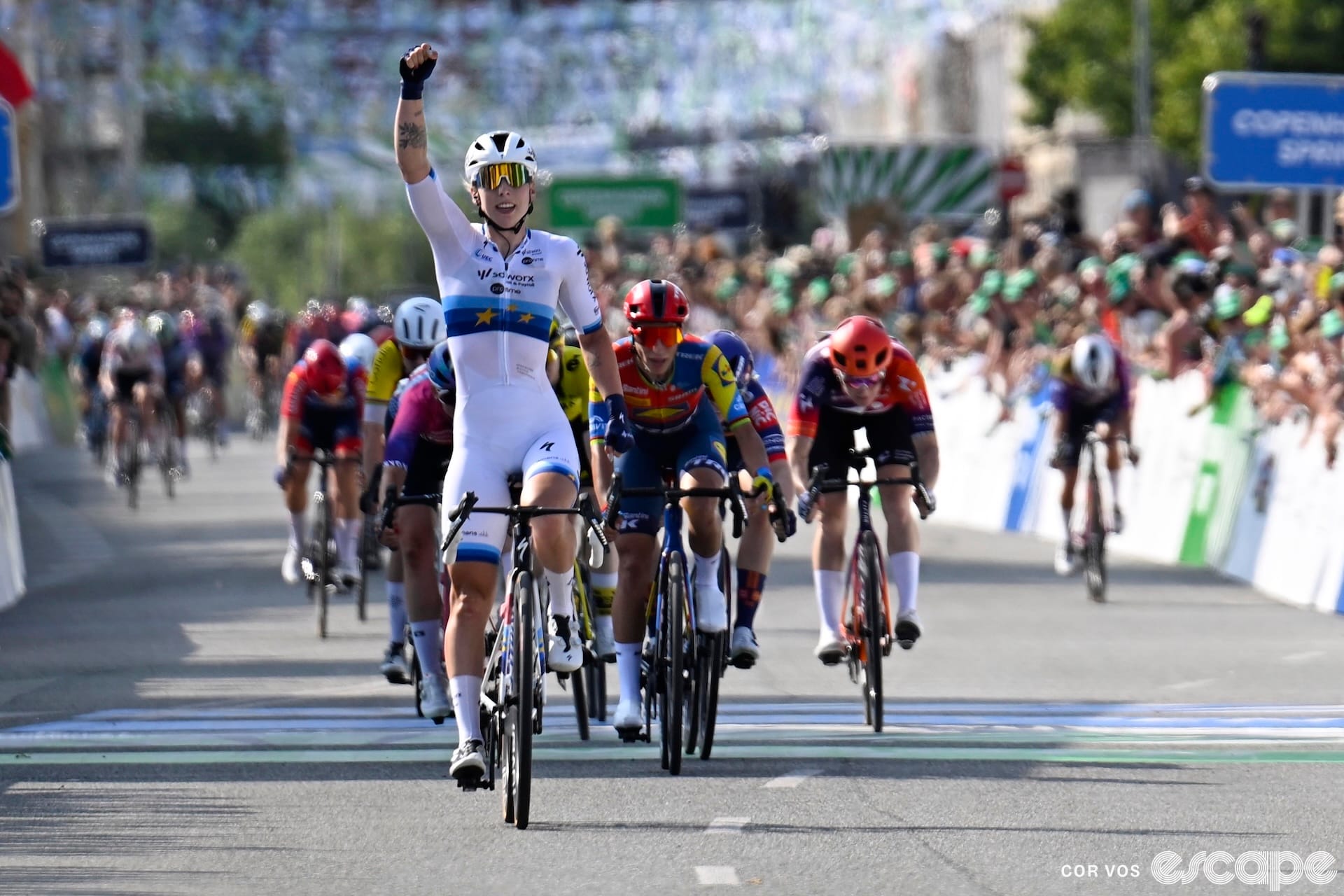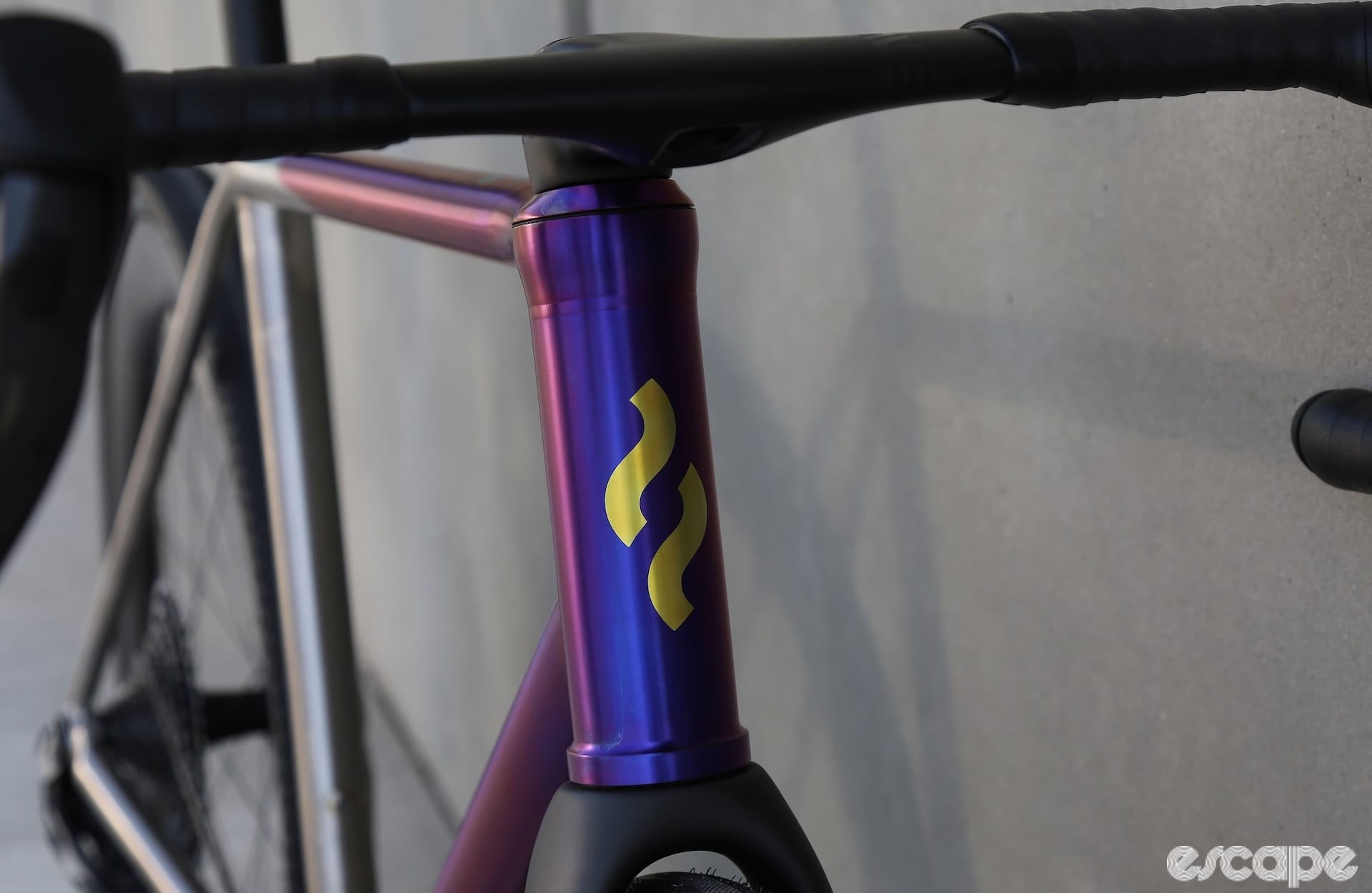At the 2025 Giro d'Italia, Mads Pedersen won the first stage of the race on the 14th anniversary of Wouter Weylandt's death, and dedicated the win to his memory. "To give the team and Wouter Weylandt this victory means a lot," Pedersen said in his post-race remarks.
Weylandt's sister, Elke – operations manager for Pedersen's Lidl-Trek team – continues her tradition of writing a yearning letter to her brother on her blog each year. This year, she told Wouter how her son, Loïc, is following in his footsteps: "During his first victory, Loïc made a W with his hands. My heart was filled," she wrote. "Sometimes people ask me how on earth we can allow Loïc to race. But how could we forbid him? Sometimes people ask how I can work in cycling. But where could I keep you closer to me than here?"
And yes – 'Sex on Fire' still rings out at the Giro d'Italia's stage finishes.
Every Grand Tour is made up of choices big and small – from riders' strategies, to the spare bikes they ride, to the sponsors of the promotional caravan, to the Pantone shade of the jerseys – and there are mysteries (and answers) to be found in virtually all of them. But sometimes, a question surfaces above the hubbub, demanding deeper investigation.
The particular question we're looking into together, you and I – why they play the 2008 Kings of Leon song ‘Sex on Fire’ so often at the Giro d’Italia – carries such an imperative. How can one not immediately want to grapple with that?
This question first came to our attention via an email from Escape Collective member Alison Neidt Toonen, but it’s been occupying space in the back of peoples’ minds beyond just that, from ancient Reddit threads to our current-day workplace Slack. Maybe you've noticed it too, and have wondered the same thing. There are layers to the question: it is not so much ‘why do they play Sex on Fire all the time at the Giro?’ (although it kinda is that, too), but why this song specifically, and why here, and why now? What message are the Giro’s organisers trying to send with this very particular and dated choice, and how does 'Sex on Fire', specifically, help them transmit that message in the extremely sex-forsaken context of an elite bike race? Is there a fun story behind it? Is it, actually, kind of a touching tale?
Well, let's find out.
This starts in 2008, I suppose, with the release of the song in question. You’ve probably heard it: it was a pretty inescapable cultural phenomenon of its era, the lead single from the fourth album by the vaguely churchy, generically scruffy, extremely fraternal mainstream US rock band Kings of Leon. To refresh your memory, we begin with a chugga chugga of guitar before the drums crash in, and then Caleb Followill’s weirdly strangled vocals.
“Lay where you're laying, don't make a sound,” he begins. “I know they're watching, they're watching / All the commotion, the kiddie like play / Has people talking, talking.” Then comes the knockout punch of the chorus, his vocals soaring over the churning tones of three other Followills thrashing away. “Yooooooooou … Your sex is on fire.”
If that doesn’t scream ‘cycling’ to you, that’s probably fair enough: it’s not entirely clear to me what it does scream, although it has notably been described as “the apex, death and afterlife of landfill indie all in one go”. The hook itself is kinda nonsensical – Wikipedia would have you believe that the band “never intended the song to be named ‘Sex on Fire’ and that it was not intended to be about sexuality”; alternative titles they workshopped were allegedly ‘Socks on Fire’, ‘Snatch on Fire’, and ‘Cocks on Fire’, which are bold choices if nothing else. But although the take-home message of the song is ambiguous, its mainstream appeal was not: it was a sleeper hit, sitting in the UK singles chart for a combined 90 weeks, and crossing over to the continent with 60 weeks in the German chart. All of which means that in 2011, years after it first saw the light of day, it still carried some cultural currency.
I should probably flag here that we're about to cross from rock history into cycling history, and things are about to get a little heavy. Because this is when ‘Sex on Fire’ becomes a part of the Giro d’Italia’s DNA – a moment we can narrow down to a day and a specific location: May 9, 2011; Reggio Emilio, the start of the third stage of that year’s race. The stage began like any other day for the riders of the race: the pre-race briefings, the rev-up routines. On the Leopard-Trek bus, ‘Sex on Fire’ blasted out: the team would “sing along at full volume, pure release. To get you ready,” remembers Tom Stamsnijder. It was the Belgian sprinter Wouter Weylandt’s favourite song, and this song was a last adrenaline boost before the riders left the bus and saddled up for the day ahead.
Did we do a good job with this story?






